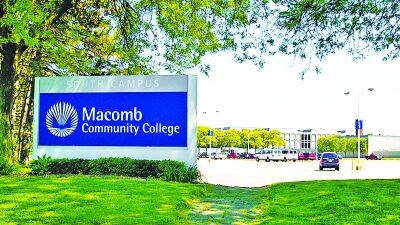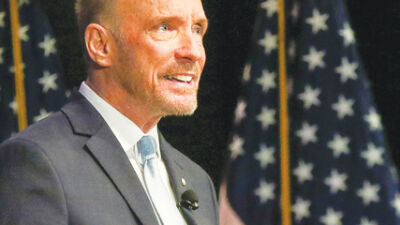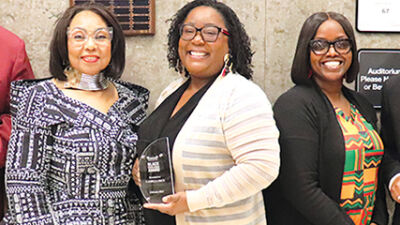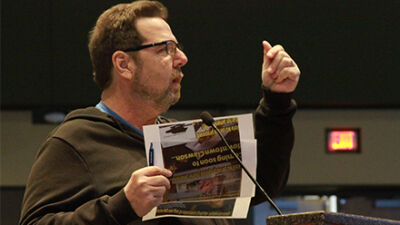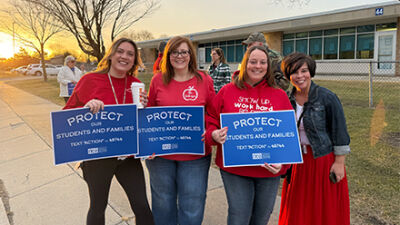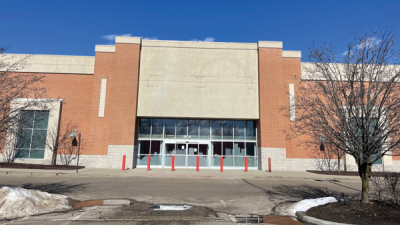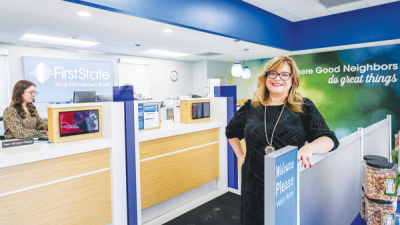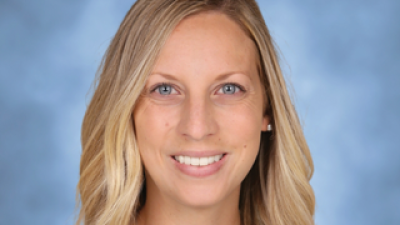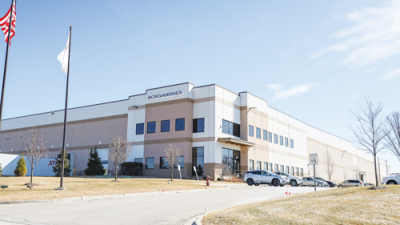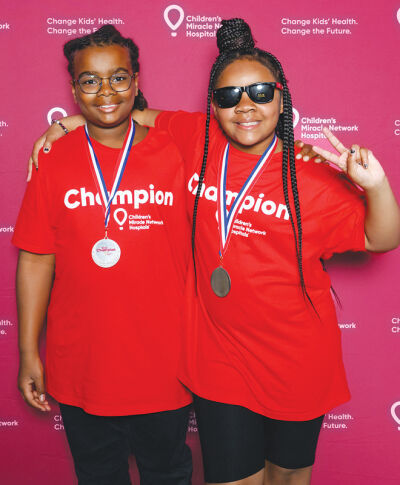
Braylen, pictured left, and Rylee Watson, are this year’s Children’s Miracle Network (CMN) national champions. As CMN champions, they are using their voices to advocate for other children with speech and language delays.
Photo provided by Fran Watson
SOUTHFIELD — Brother-sister duo Braylen and Rylee Watson, 12 and 11, respectively, were recognized as Children’s Miracle Network (CMN) 2025 national champions by Corewell Health Children’s, a member of CMN.
Each year, local member hospitals select a “Champion” from the community to represent the children treated at their local children’s hospital. The role of a champion is to spend the year advocating for the needs of children’s hospitals across the United States and Canada.
Last year, the siblings were honored locally as the 2024 Children’s Miracle Network child ambassadors.
When Braylen was born, he was premature and weighed just 2 pounds. Around age 2, his mother, Fran Watson, noticed that her son had difficulty communicating with other children on the playground and that he would make muffled noises in an attempt to be understood. Soon after, she observed similar issues with her daughter, who also had trouble speaking clearly and would make unclear gestures.
Watson said that she was a mom on a mission when a speech pathologist referred her to CMN and a scholarship that helped her send both of her children to the RE/MAX Communication preschool to help with their language delays.
“When you’re in that unknown and you’re searching, you are afraid. You don’t know which way to go,” she said.
She expressed the pain she felt watching her children struggle to communicate and be understood by other kids.
“Then it’s like, ‘Ok, here’s my support system, here’s their support system.’ And it’s a safe space for you and your family to come together and help you grow. And you get to watch them excel and turn into these little people that you never get tired of hearing their voice,” Watson said.
She joked, “You never know what’s gonna come out of their mouth, but you can understand it.”
“It means a lot to us that they gave us a voice and now we can talk. We can talk clear and we’re thankful that they gave us a voice,” Rylee Watson said. “It’s been awesome to be a national champion.”
Braylen Watson shared what having a voice allows him to do.
“Now that they’ve helped me with my voice, I get to do a lot of stuff now and even talk to my mom,” he said.
Rachel Englert has worked as a speech pathologist and supervisor in children’s rehabilitation at Corewell Health for over 10 years. She shared that she worked with Braylen when she first started years ago.
Englert shared that early intervention, when children are under the age of 5, can help alleviate speech delays and language difficulties and get them to communicate more effectively. She added that in that preschool age group, speech therapy is play-based and engages the child to build language.
Englert shared some things for parents to be on the lookout for that might indicate their child has a speech delay.
“If a child isn’t babbling by 7 months of age, that would be an indicator to parents to talk with their pediatrician and maybe seek out an evaluation,” Englert said.
According to Englert, if by 12 months of age a child is not using gestures, such as waving “hi” and “bye” or pointing to show interest, it could be another indication.
“This is kind of a broader range, but if the child’s not understanding what others are saying to them between 1 and 2 years of age, that would be a red flag. So something like, ‘Where are your shoes?’ or ‘go get your juice’ — if they can’t pick those items out, that would be a concern,” she said.
By 12 to 18 months of age, if a child can only say a few words and doesn’t seem to be progressing, that would also be a concern, according to Englert.
“If they’re not putting two words together around their second birthday — so things like, ‘Daddy’s car’ or ‘Where’s Mommy?’ — that would be concerning,” Englert said. “And then 2 to 3 years of age, if you’re starting to notice that the child is having trouble playing with and interacting with their peers, that’s another concern.”
She explained that some children may have an underlying cause for their trouble communicating, such as seizures, difficulty hearing, or an autism diagnosis. However, that is not always the case, such as the Watson siblings, who had no underlying cause for their speech and language delays.
Englert shared some advice for parents.
“Take it one step at a time. You can’t change things overnight, but you can get started by maybe talking with your doctor to get a prescription for speech therapy and seeing what the outcome of the evaluation is,” Englert said. “And then, if there are things for your child to work on, just focus on one thing at a time and those improvements will come with that consistency.”
For more information on Children’s Miracle Network, visit www.childrensmiraclenetworkhospitals.org.
To learn more about RE/MAX Communication preschool, visit www.beaumont.org/treatments/remax-communication-preschool-program.
 Publication select ▼
Publication select ▼


